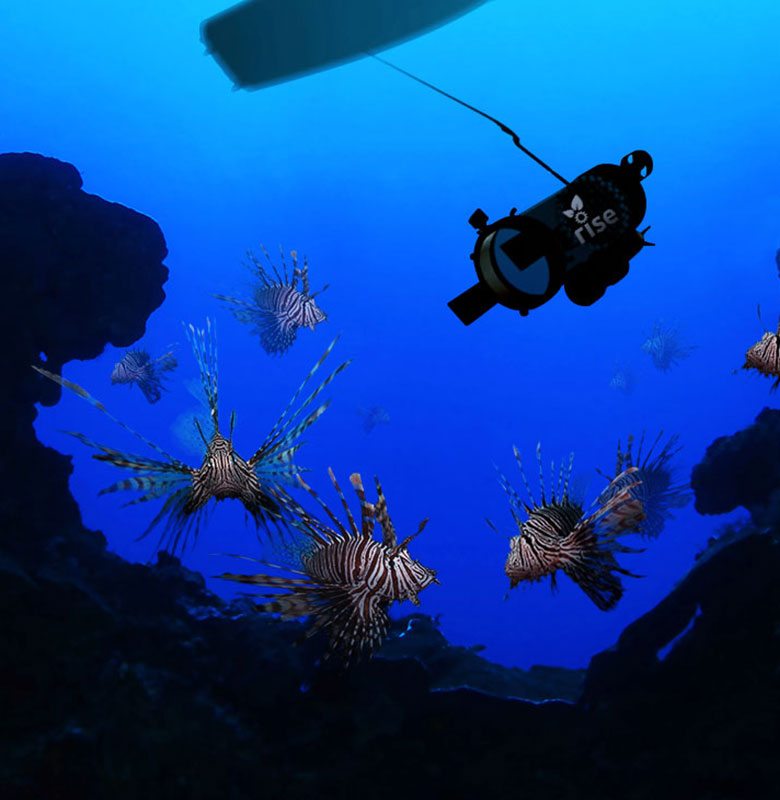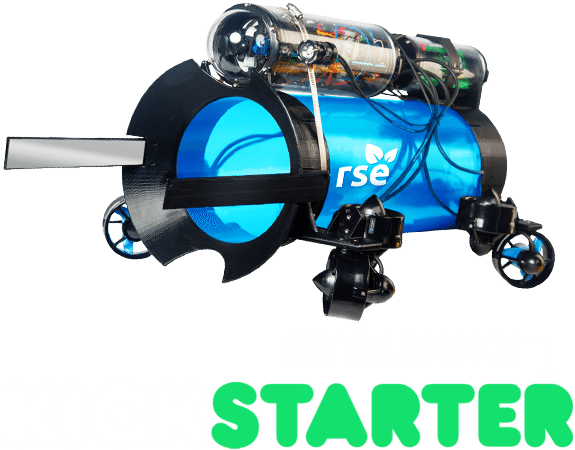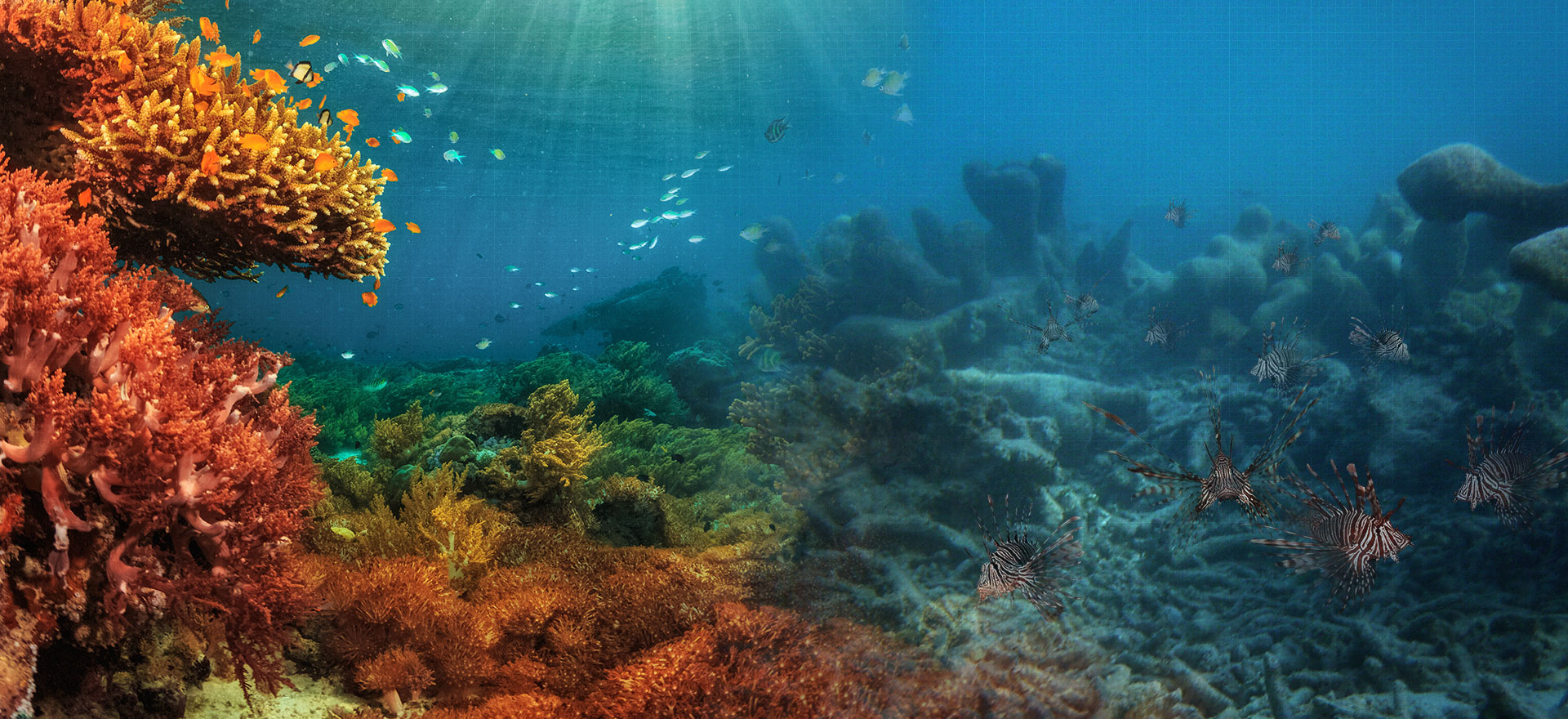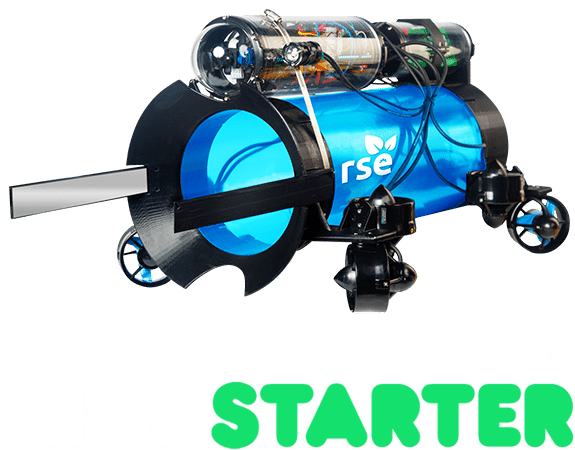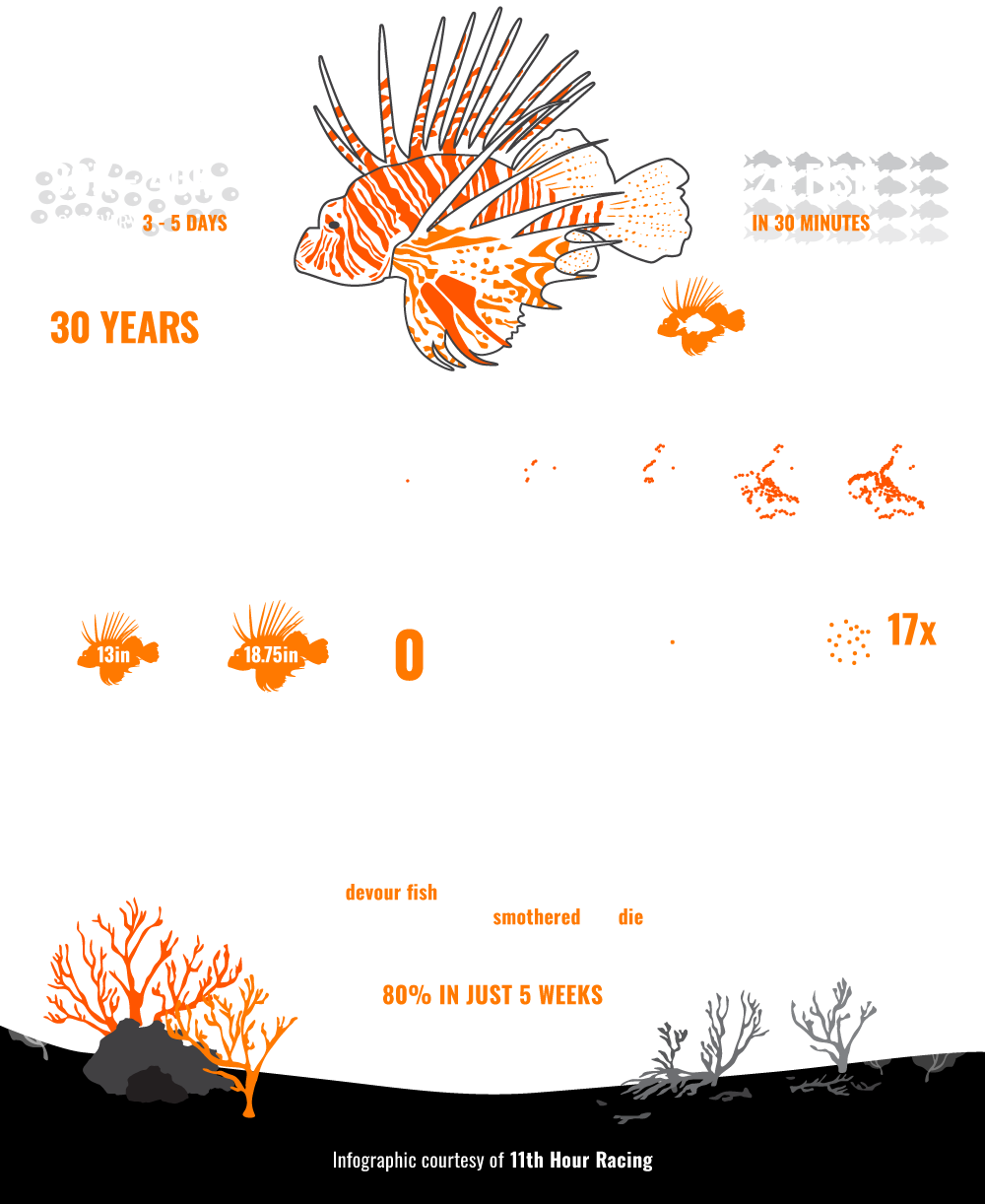The Lionfish Project
This Invasive Predator From The Pacific Is Rapidly Destroying Our Reefs
Lionfish are native to the Indian and Pacific Oceans and live there in a balanced ecosystem. In 1985 lionfish were spotted off the east coast of Florida, most likely introduced there by aquarium owners discarding these beautiful fish into the ocean. Since then, lionfish have relentlessly invaded the western Atlantic, with scientists estimating well over a million fish devastating reefs and fisheries in all warm water regions, especially around Florida, throughout the Caribbean, and Bermuda. Moreover, the population continues to expand rapidly without check. Lionfish mature in 12 months and spawn approximately 30,000 eggs every 4–5 days, or about 2 million eggs per year.
Lionfish are indiscriminate and voracious predators that do not stop feeding. They gorge on at least 70 different species of reef fish and crustaceans and are capable of eating prey up to half the size of their own body. A single lionfish can reduce the fish biomass on a reef by 80% in just one month. Lionfish are armed with 18 venomous spines making them an unattractive food source for other marine creatures. This apex predator has almost no natural predators of its own in the Atlantic. With no apparent limit to their population growth, other than water temperature, lionfish pose a huge threat to the fish stock of the western Atlantic Ocean.
The unsolved disaster resulting from the infestation of lionfish in the western Atlantic begs for new ideas and a new approach. To be effective, the solution needs to be widely deployable and be economically self-sustaining. It needs to be able to reach large lionfish populations at depths down to 1,000 feet, as well as guard reefs from infestation. The operators must be non-professionals who can deploy and maintain the solution without extensive training. All these requirements can be met with properly designed, manufactured, and deployed underwater robots.
Our Reefs In Peril
Less obvious, but very real, is the threat that lionfish pose to the reef itself. Reefs are already under threat from climate change and ocean acidification. As the lionfish devour herbivores, such as wrasse, the corals become vulnerable to algae overgrowth and eventually are smothered and die.
With no natural predators and a destructive population that is expanding exponentially, this is a problem that demands immediate intervention.
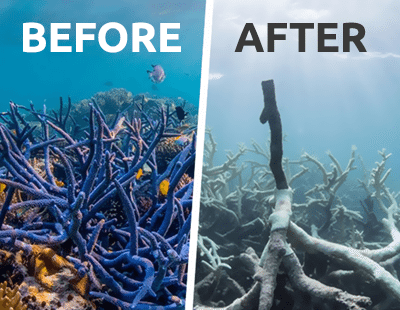
Difficulties Faced By Divers Hunting Lionfish
There are many challenges that make robots the perfect solution for this environmental crisis in the Atlantic Ocean, Gulf of Mexico, and the Caribbean. No type of fishing, trapping, or netting has proven to be effective against the lionfish, especially without creating further damage to reefs and desired species.
The numbers of lionfish found in deeper water, sometimes in large colonies, is staggering. Sadly, sport divers are very limited in the areas where they go with sufficient frequency and in sufficient numbers to have a meaningful impact. Sport divers can only effectively hunt lionfish to depths down to 80 feet, and usually do not travel far from shore.

Robots Rise To The Challenge
An undersea robot will enable the capture of lionfish from areas not easily reachable by people.
On April 19, 2017, RSE will be in Bermuda to unveil a functional design prototype of an affordable robot that will enable the mass capture of lionfish below depths reachable by sport divers, where the population expands unchecked. At the same time, RSE will launch a crowdfunding campaign to support the final development of the robot as well as resources to bring it to market in scale.
Later in the evening, we will also be participating in the 11th Hour Racing #EatLionfish Chefs' Throwdown at the National Museum of Bermuda. In addition to robotics, the Throwdown will feature six celebrity chefs representing the six nations and teams competing in the America’s Cup - with Rob Ruiz as executive chef, they will serve up lionfish delicacies, a sustainable and delectable seafood choice.
The public and media are invited to join the RSE team for an "Open House" between 12:00 PM and 3:00 PM on Tuesday, April 18 for a sneak peak to observe the testing of the undersea robot in a marine enclosure at the old Ariel Sands Resort in Hamilton, Bermuda. We look forward to seeing you there.
For more information about the open house please contact Andrew Doucette at [email protected].
